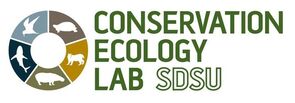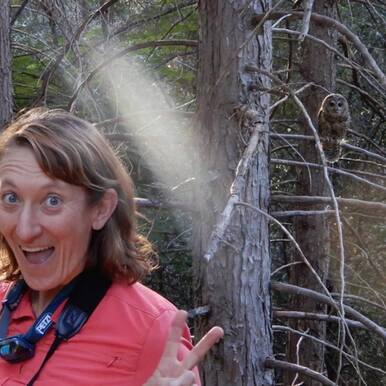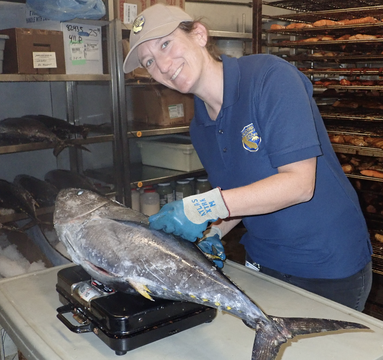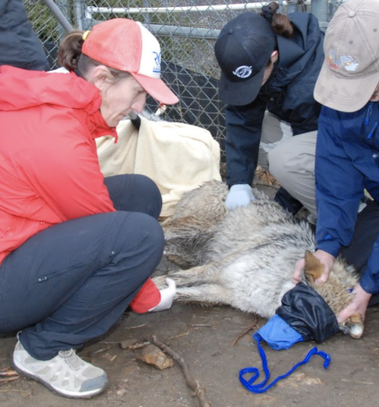Erica Mills, M.S. studentM.A. Biology, Miami University Advanced Inquiry Program, 2016
B.A. Psychology, Vassar College, 2007 Contact: [email protected] After completing my B.A. in Psychology and getting my teaching credential, I worked in education for several years with ages ranging from preschool to high school. Then I began a seasonal position as a walking tour guide at the San Diego Zoo Safari Park. This is where my interest in wildlife-centered research blossomed, and it became my goal to collect and analyze data that will facilitate new strategies in conservation and wildlife management. I enrolled in the Advanced Inquiry Program at Miami University (partnered with the San Diego Zoo), where I completed my M.A. in 2016. My capstone project was on species reintroduction as a tool for restoring and preserving biodiversity, and on the role of behavioral plasticity in reintroduction success. A highlight of my program was the 3.5 weeks I spent in Belize, where I had the opportunity to design my own study and collect observations on avoidance and fear behavior in captive jaguars at The Belize Zoo. After receiving my MA, I continued working with apex predators at the California Wolf Center in Julian. Over the past three years, I have worked as a volunteer assisting with tours, husbandry, and animal handling support. Through these experiences, I built on my understanding of environmental factors that influence predator behavior. One such environmental factor that is of particular importance to me is anthropogenic disturbance, which manifests itself through climate change, habitat loss, and reduced resource availability. In 2018, I took a seasonal position monitoring Western snowy plovers and California least terns nesting on Camp Pendleton. Through surveys and behavioral observations, I learned about the challenges to declining California least tern populations, such as nest predation and resource scarcity. I continued with conservation work in coastal and oceanic habitats at the California Department of Fish and Wildlife's Pelagic Fisheries and Ecosystems Program. I collected and managed catch data from commercial marine fisheries, which included keystone predators such as sharks and tuna, as well as important prey species such as sardine and anchovy. Through this experience, I began to consider how changes in sea surface temperature were leading to changes in prey fish and, by extension, seabird foraging strategies. These questions are what led me to pursue an M.S. at San Diego State University in Dr. Rebecca Lewison’s Conservation Ecology Lab, where I am exploring the impacts of climate change on phenology and reproductive output in endangered California least terns. I am excited for this opportunity to conduct research that will inform important land management decisions and support California’s fragile coastal ecosystem, its wildlife, and people who rely on its resources and landscapes. |




